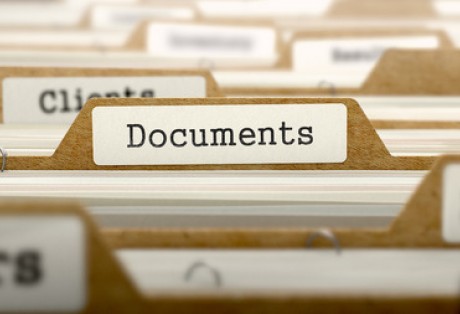Though it feels great to clear out paperwork and get organized, you don't want to be caught empty-handed if an IRS auditor contacts you.
In general, you must keep records relevant to your individual tax return three years from the due date of the return or the date you filed, whichever is later.
In most cases, the IRS can audit your return for three years. You can also file an amended return on Form 1040X during this time period if you missed a deduction, overlooked a credit or misreported income.
There are exceptions. For example, if the IRS has reason to believe your income was understated by 25 percent or more, the statute of limitations for an audit increases to six years. Also, if there is suspicion of fraud or you don't file a tax return at all, there is no time limit for the IRS.
How Long to Keep Documents
Completed tax returns. Even if you don't keep the returns indefinitely, you should hang onto them for at least six years after they are due or filed, whichever is later.
Backup records. Any written evidence that supports figures on your tax return, such as receipts, expense logs, bank notices and sales records should generally be kept for at least the three-year period.
Exceptions. You have up to seven years to take deductions for bad debts or worthless securities, so don't toss out records that could result in refund claims for those items.
Real estate records. Keep these for as long as you own the property, plus three years after you dispose of it and report the transaction on your tax return. Throughout ownership, keep records of the purchase, as well as receipts for home improvements, relevant insurance claims, and documents relating to refinancing. These help prove your adjusted basis in the home, which is needed to figure the taxable gain at the time of sale, or to support calculations for rental property or home office deductions.
Securities. To accurately report taxable events involving stocks and bonds, you must maintain detailed records of purchases and sales. These records should include dates, quantities, prices, dividend reinvestment, and investment expenses, such as broker fees. Keep these records for as long as you own the investments, plus the statute of limitations on the relevant tax returns.
Individual Retirement Accounts (IRAs). The IRS requires you to keep copies of Forms 8606, 5498 and 1099-R until all the money is withdrawn from your IRA accounts. With the introduction of Roth IRAs, it's more important than ever to hold onto all IRA records pertaining to contributions and withdrawals in case you're ever questioned.
If an account is closed, treat IRA records with the same rules as securities. Don't dispose of any ownership documentation until the statute of limitations expires.
Issues affecting more than one year. Records that support figures affecting multiple years, such as carryovers of charitable deductions, net operating loss carrybacks or carryforwards or casualty losses, need to be saved until the deductions no longer have effect, plus seven years, according to IRS instructions.
Need to Know More About Record Keeping?
These guidelines are for individual tax purposes. Insurance companies, creditors, and businesses may have other requirements. PDM’s tax experts can help advise you on the best course of action. Contact us; with our years of technical experience, advanced training, and cutting edge technology, we are your financial partner.
